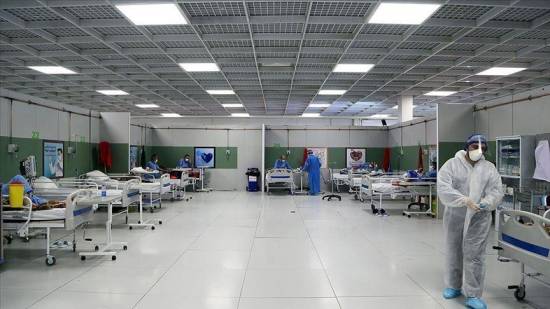
COVID-19 deaths are rising globally and the death toll is much higher than the reported number of over 5 million as 56 countries have increased fatalities, along with reports of overwhelmed hospitals, the World Health Organization said Thursday.
"This should not be happening," WHO Director-General Tedros Ghebreyesus said at a COVID webinar in Geneva at which he criticized vaccine manufacturers for keeping jabs in the hands of wealthier counties and not getting them to parts of the world where they are needed.
"More than 5 million deaths have now been reported, and we know the real number is higher. We are still losing more than 50,000 of our sisters and brothers every week," said Tedros.
"Last week, 56 countries from all regions reported an increase in deaths from COVID-19 of more than 10%."
The WHO had heard reports from many countries about the lack of ICU (intensive care unit) beds, lack of supplies, and "overwhelmed health workers and hospitals" deferring other needed procedures.
Tools are there
"We have all the tools to prevent transmission and save lives," said Tedros.
He cited issuing an emergency use listing the day before for Covaxin, developed by Bharat Biotech, adding to those vaccines validated by WHO to prevent COVID-19 caused by SARS-CoV-2.
Emergency listing contributes to vaccine equity by enabling countries to expedite their regulatory approval to import and rollout vaccines, said the WHO chief.
"We encourage all vaccine manufacturers who have not yet received emergency use listing to contact WHO to discuss how to accelerate the process through rolling submissions.
"We continue to call on manufacturers of vaccines that already have WHO emergency use listing to prioritize COVAX, not shareholder profit," noted Tedros, referring to the facility backed by WHO and Gavi, the world vaccine alliance, for more equitable vaccine distribution.
He said WHO continued to hear excuses about why low-income countries have only received 0.4% of the world's vaccines, one being that low-income countries cannot absorb vaccines.
"That's not true," said Tedros. "With the exception of a few fragile conflict-affected and vulnerable countries, most low-income countries are ready to go."
He said the problem is that they cannot get the vaccines.
Another excuse from manufacturers is that low-income countries have not placed orders for vaccines.
"Most low-income countries are relying on COVAX, which has the money and the contracts to buy vaccines on their behalf. But manufacturers have not played their part," said Tedros.
"We still do not know when the manufacturers will deliver. We continue to call on all manufacturers to prioritize their contracts with COVAX and the African Vaccine Acquisition Trust or AVAT," said Tedros.
He said no more vaccines should go to countries that have already vaccinated more than 40% of their population.
The WHO chief said most countries with high vaccine coverage continue to ignore the health organization’s call for a global moratorium on boosters.
These are being distributed at the expense of health workers and vulnerable groups in low-income countries who are still waiting for the first dose./aa


